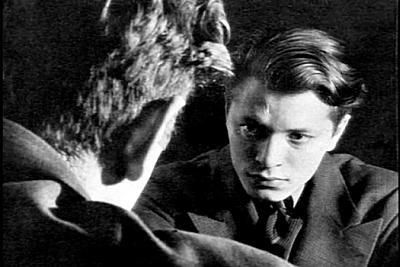 |
Regardless or the era, the social climate or other cultural ephemera there are those authors that remain obscure but highly esteemed simultaneously. I mentioned Donald Barthelme in a previous post, he is an example, very popular but elusive. Another author, who since publishing his two great works - one a collection of poems - Summer Knowledge - and one celebrated collection of short stories - In Dreams Begin Responsibility, Delmore Schwartz seems never to have exceeded a cult following of readers while at the same time being anthologised in both short story and poetry collections of American Greats. It is a problem of output in Schwartz's case I think. Following the praise he got from both collections very little emerged after that, the odd story or poem but nothing matching the magnitude of either of those famous works. A couple of avid fans and friends have gone a long way in consolidating Schwartz's place in literary history. First there was Saul Bellow's fictional portrayal in Humboldt’s Gift, and later Lou Reed was mentored by Delmore and later immortalised their relationship in his song on Blue Mask - The Ghost of Delmore Schwartz. I'm sure that Lou Reed's presence in Delmore Schwartz's legend has lent him a rock and roll layer that did not really exist, but for all Delmore was and wasn't he has been gradually pieced together by legend.
But if we have anything besides the legend we have the work. The title story, In Dreams Begin Responsibility has become a classic American short story. Although it is not often cited in lists of American greats, it has been consecrated by a plethora of author's and scholars as being one of the most original examples of at the tail end of Modernism. Of them probably Vladimir Nabokov was the story’s greatest endorser – saying it was the greatest short story written in English. Schwartz plays with form in the story. There is no direct protagonist in a sense, as the focus of attention is the protagonist's reaction to watching his parent’s first courtship on a cinema screen, and the more he watches the more despairing he appears to grow.
Masterly in its minimalism at time, that the story barely reaches ten pages and he was able to say so much is a true example of the short story art, the condensed and sculpted work that could not have one word less or one word more without destroying the effect.
Its famous last lines, the infamous ''lip of snow'' brings our protagonist back onto the street where he has been dreaming. This is by no means the ''and he woke up, was all a dream'' ending. It is unsure, it is speculative - we are not sure if he's really been asleep. Other stories in the collection equal the ice-pick language and evoke New York, the people, the familial torments and intellectual conflicts with unwavering precision. But in the title story an extra layer lets us into something else, something less intellectual and more humanist, something more painful and beautiful, pitiful and brilliant than the others - it is more honest but loses not of its artifice.
If I were ever given the opportunity to reprint a book and distribute it using my own marketing plan and design, this would be the book. It should be on the free time syllabus of any short story reader or writer and it's a story likely to turn many readers into writers, as it shows how with so few words and with such imagination a near perfect work of art can emerge.
No comments:
Post a Comment